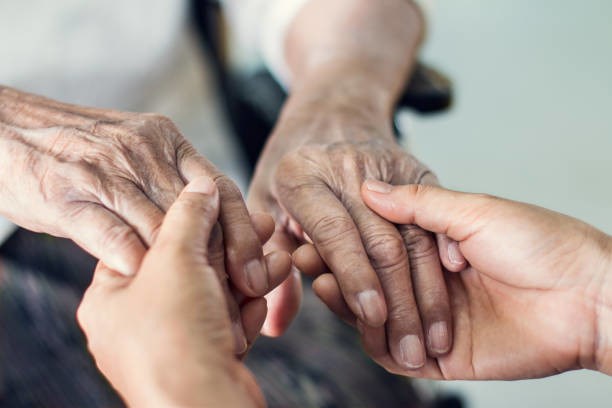National Caregiver Day is Tuesday, April 4. In honour of this day, I spoke with my colleague Mary Caros, who heads up the Resource Centre’s Caregiver Support Network. Here’s our conversation:
Angie: Mary, can you talk about the significance of National Caregiver Day?
Mary: This day recognizes the many caregivers who are providing care for someone with a life-limiting illness. Almost all of us will be a caregiver or need a caregiver at some point in our lives. In fact, 28 per cent of BC residents are family caregivers, and 60 per cent of them are working in addition to caregiving. Family caregivers are a hidden, mostly unpaid workforce requiring social and financial support, housing, and service navigation if we want to continue to rely on their invaluable role in seniors’ health.
A: Who is considered a caregiver?
M: There are family/friend caregivers and paid caregivers. A family/friend caregiver is a family member or friend who provides care and support to someone living with disease, disability, or frailty due to aging. A paid caregiver is the same but is paid for their work.
A: At what point is a person considered a caregiver, as compared to simply being a supportive part of a network?
M: Sometimes family members become caregivers when there is a major health event or diagnosis like a stroke or a fall. Or maybe you realize that your partner’s behaviours are more extreme and their memory gaps are more serious. Perhaps you’ve been helping a neighbour occasionally, but their ability to manage has decreased and the frequency and complexity of your support has increased. Being responsible for someone else’s care becomes your new normal.
A: What types of responsibilities do caregivers have?
M: The role of a caregiver changes over time and depends on the care recipient’s condition. The phases of caregiving are generally Awareness, Unfolding Responsibilities, Increasing Care Demands, End of Life, and Grief/Bereavement. For both paid and family caregivers there is usually an agreement between the caregiver and the person receiving care and might include personal care such as bathing and getting dressed; financial and legal responsibilities; managing transportation and appointments; coordinating social outings or events; handling hospital and emergency transitions; groceries and meal preparation; household maintenance; emotional support and visits; and other problem-solving responsibilities.
A: Why is it important to identify yourself as a caregiver?
M: Many people helping friends and loved ones simply identify as who they are — a neighbour/spouse/daughter, etc., helping out. But it’s important to identify as a caregiver, so that you can navigate and advocate for the resources that you and your care recipient need. Being a caregiver is rewarding, but also demanding and there is a real risk of caregiver burn-out.
A: How can caregivers get help?
M: The caregiver role can be confusing and filled with questions and doubts. It’s critical to their own health and the well-being of the person receiving care that caregivers get the answers, supports, and reassurance that they need to continue caring through all the complex stages of caregiving. Luckily, there are local and provincial support services for caregivers including the Sunshine Coast Resource Centre’s Caregiver Support Program. The program offers one-on-one support by phone; information and referral related organizations and groups; navigation support for healthcare and other service providers; and connection to community resources. Find out more at www.resourcecentre.ca/program/caregiver/ or call 604-885-4088 or email [email protected].
A big thank you to Mary for her help putting this column together! Please continue to send us your ideas for this column. I love getting your emails and phone calls.
Angie Theilmann is an information and referral specialist at the Sunshine Coast Resource Centre, your community information hub. The Resource Centre is open Monday to Thursday 10 a.m. to 2 p.m. Appointments are recommended to be sure we are available to help you. Note: on some days, we can book clients after 2 p.m. Contact us: [email protected] or 604-885-4088.

